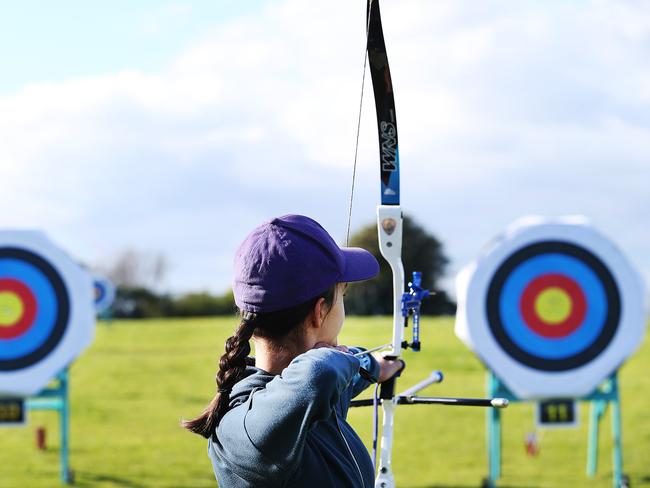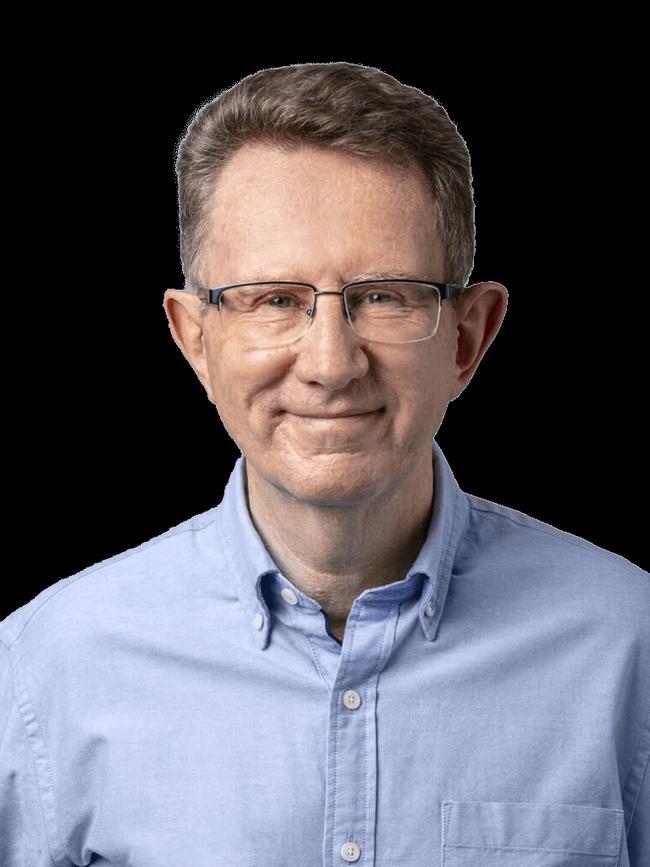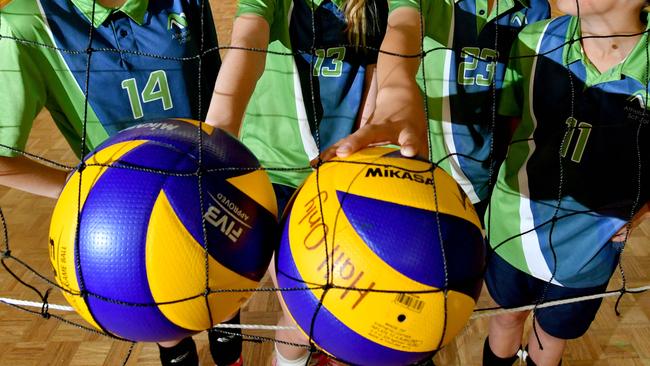Fears for talent pipeline as one in six primary school kids don’t play an Olympic sport
Apart from soccer and swimming, hardly any kids are playing Olympic sports. And the reason why could mean bad news for future gold medal bids.
NSW
Don't miss out on the headlines from NSW. Followed categories will be added to My News.
Families are being priced out of the Olympic dream as cost-of-living pressures force kids out of expensive sports programs, sparking calls to increase funding for free and low-cost alternatives.
One in three primary school children across Australia dream of becoming an Olympian, but nearly half of the 1000 parents quizzed in a new survey said the cost prevents their children from playing more sports.
Over 85 per cent said their children would play more sports if the equipment was more accessible.
The research, funded by French sporting retailer Decathlon, also found that while 42.7 per cent of NSW kids swim regularly or do another aquatic sport and 31 per cent play soccer, fewer than 5 per cent have taken up archery, skateboarding, table tennis, judo, golf, hockey, volleyball, canoeing or sport climbing.
One in six don’t regularly play any Olympic sports at all.

Sydney sports psychologist Alan Hely said organised sport and inclusion – including for children from the least financially well-off families – is the “obvious answer” to securing Australia’s pipeline of sporting talent.
“I think our pipeline (relies on) opening up as many sports as possible as early as possible – we’ve got so many examples of that, like the Matildas … they’ve all been playing since the age of five or six,” he said.

“Participation has got a lot to do with our culture and our emphasis on the traditional sports such as football and cricket, and there’s limited access to the other sports.”
One season of Little Athletics can cost over $200 in parts of Sydney, while a single session of archery can cost between $35 and $56. Casual junior hockey will set families back $120 per child, while playing in a competition can cost up to $300 for under 12s – before uniform costs. Recreational paddling at Sydney’s Olympic whitewater facility in Penrith costs $90 per session.
Volleyball NSW Chief Operating Officer and former Volleyroo Rebecca Walter said costs can be a significant barrier, and despite substantial growth over the past five years, participation growth has recently plateaued.
“Sports often become a luxury that families cut first - key expenses such as equipment, apparel and facilities are largely fixed in cost and at times can be uncontrollable,” she said.

The “easy answer” to improving participation, she said, “is more funding, but it’s never that simple”.
“Volleyball NSW believes in the need for innovation ... highlighting the holistic benefits of sport.”
Sport NSW CEO Stuart Hodge said while clubs “work hard to try and keep costs down”, the winding back of government incentives like the Active Kids vouchers is an “unfortunate” factor – especially with insurance, equipment and facility hire costs often outside of a club’s control.
Those expenses, however, are not the only reason families are holding back, Mr Hodges said, with some children turned away simply due to a lack of facilities.
“Pools and ice rinks have closed, some indoor sports are at capacity or can’t get court availability and grass sports are under serious pressure,” he said.
“The Games present a unique chance for governments and sports to invest in comprehensive legacy programs that will benefit community sport throughout the nation for generations.”
Schools around the country can today apply for a share in $100,000 worth of sports gear through Decathlon’s new Playgrounds to Podiums program. Bega schoolteacher Sophie Jolly said while schools play a vital role in exposing kids to a variety of sports, especially when parents can’t afford to, the equipment costs add up.
“We’ve got kids from K to 12 using gymnastics equipment and wearing it down from regular use, and the replacement of that equipment can be quite costly,” the Sapphire Coast Anglican College teacher said.
“Our sports co-ordinators really rely on applying for grants and that sort of thing to bump up extra equipment.”
More Coverage
Originally published as Fears for talent pipeline as one in six primary school kids don’t play an Olympic sport





